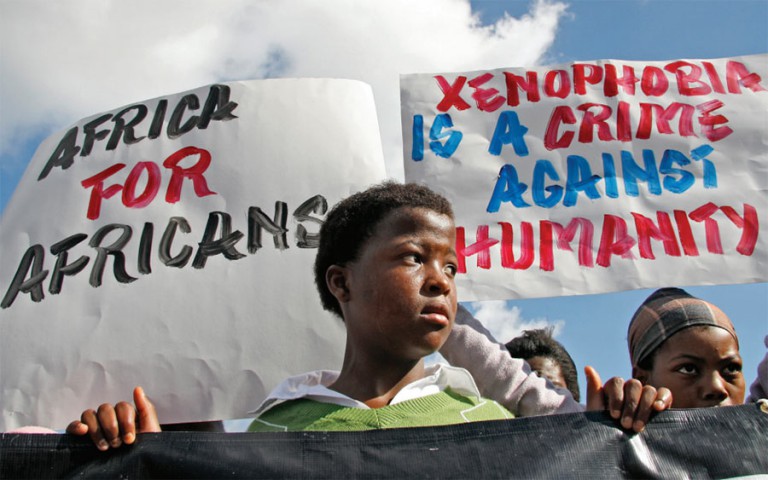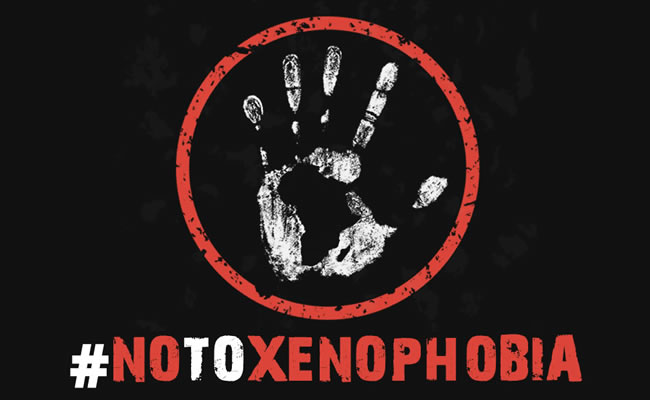#SayNoToXenophobia
Xenophobia is the dislike against people from other
countries, it is a phobic behaviour and attitude towards foreigners. South
Africa and xenophobia dates to 1980. It is through the media that the world has
gotten an insight on xenophobic attacks in South Africa over the years.
 |
| On the Xenophobic Attacks in South Africa |
The narrative being shared through the media and public relations professionals is the narrative the rest of the world took and ran with. In these narratives some added their own bumps, twists and turns, while others subtracted what suited them. The hashtag say no to xenophobia is a clear example of how powerful the media can be and how it plays a huge role in creating awareness and grow an audience. Saying no to xenophobia quickly became an international hashtag used in different campaigns to stand against xenophobia in South Africa and around the world.
During xenophobia movement in South Africa public
relations professionals throughout the country and around the world, had a responsibility
to carefully release statements on their companies stand in xenophobia crisis. Every
organization's PR team had to be sensitive and avoid making any controversial statements,
as it could just be the spark to a wildfire. South African companies were
attacked and threated in some foreign countries, as a sign of solidarity to the
injustice their fellow brothers were experiencing in South Africa. Hence the
wrong statement by any organization, could just be the next target for
violence.



The media is not doing enough to promote this hashtags and end Xenophobia, and you are right, the media should work alongside PR workers to ensure that it is known and people engage with it
ReplyDeleteAs aspiring PR workers i think we should make this part of our goal.
DeleteWhat a very educational and enlightening information,only if PRPs work closely with the media to ensure fairness and respectful representation of views, this world would be a better place.
ReplyDeleteit definitely would, as using the media effectively would have raise awareness on so many matters.
DeleteThank you for your blog. It was a very insightful one
ReplyDeleteThank you for taking the time to read.
DeleteIt is important that they are more awareness on the #SayNoToXenophobia. It needs more media coverage. Your blog was helpful.
ReplyDeleteIt really does need more media coverage. Thank you
DeleteI agree with you, though PR or media may not always be able to control the narrative or what is posted out there, however they can get infront of it by doing their best to put out as much truth about the situation as possible. Which I feel they failed in terms of Xenophobia, what was being posted on media to some extent made things worse world wide in terms of what was happening in SA at the time.
ReplyDeleteIt something the country needs to stop normalising
DeleteXenophobia is a reality in South Africa and having people talk about it, will bring more awareness and reduce xenophobic behaviour around us.
ReplyDeleteIt should not be until it directly concerns you,then people take action
DeleteThank you so much for this insightful blog. Much needed. Black on black hate is so prominent and it needs to stop!
ReplyDeleteAlways good to speak on the right of humanity
DeleteVery true! It’s really sad having to witness our fellow South Africans constantly accusing foreigners/ immigrants of taking their jobs instead of them working hard like foreigners, for example even in schools you’ll find foreigners being too achievers and that’s because they really work hard also with critical skills, businesses they work hard to improve their lives but just because they don’t and see foreigners doing so well in their country then it is a problem and they want to demand that they have those whereas they didn’t further their education and don’t even know how to run businesses hence all that then leads to strikes, imagine working so hard building something then some people, because of jealously just come and destroy! Heartbreaking
ReplyDelete#Say NO to Xenophobia
#An African cannot be a foreigner in Africa!
Good information and i can understand everything.The media should spread more awareness about Xenophobia because it's real affect the country not only the country and the PRP because working with the public with different views its hard. Xenophobia should be controlled
ReplyDeleteNot only controlled but delt with accordingly
DeleteWow this information is educational. Thanks for choosing this topic. #Xenophobia should come to an end. We are on nation and we are all equal.
ReplyDeleteThis was very informative
ReplyDeletePeople need to be educated,about what does on around them
ReplyDelete